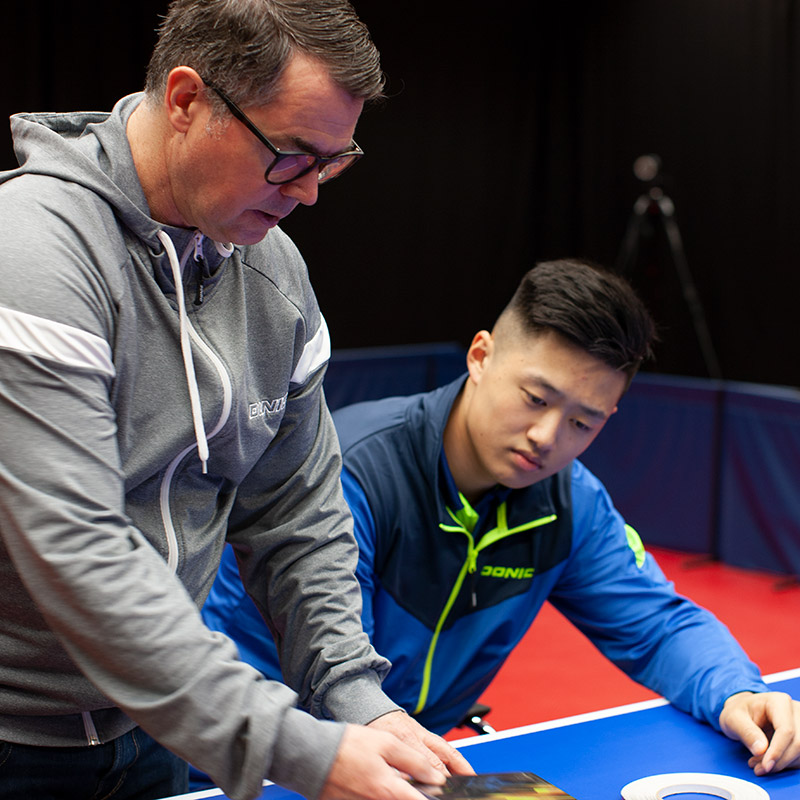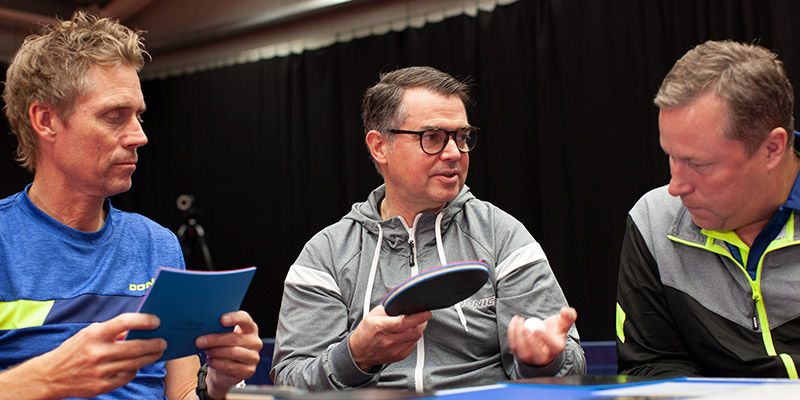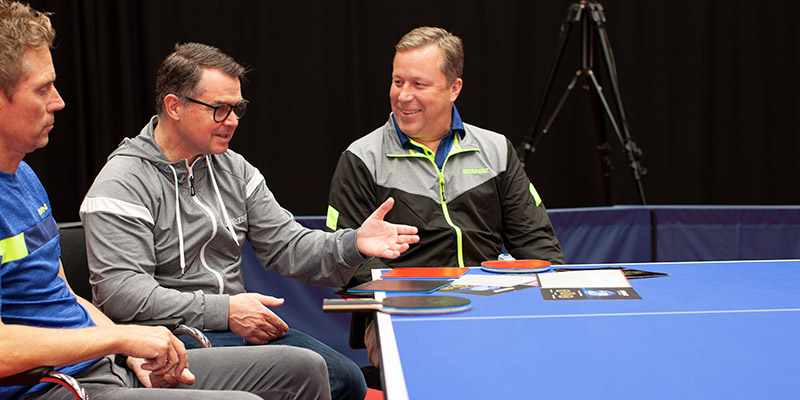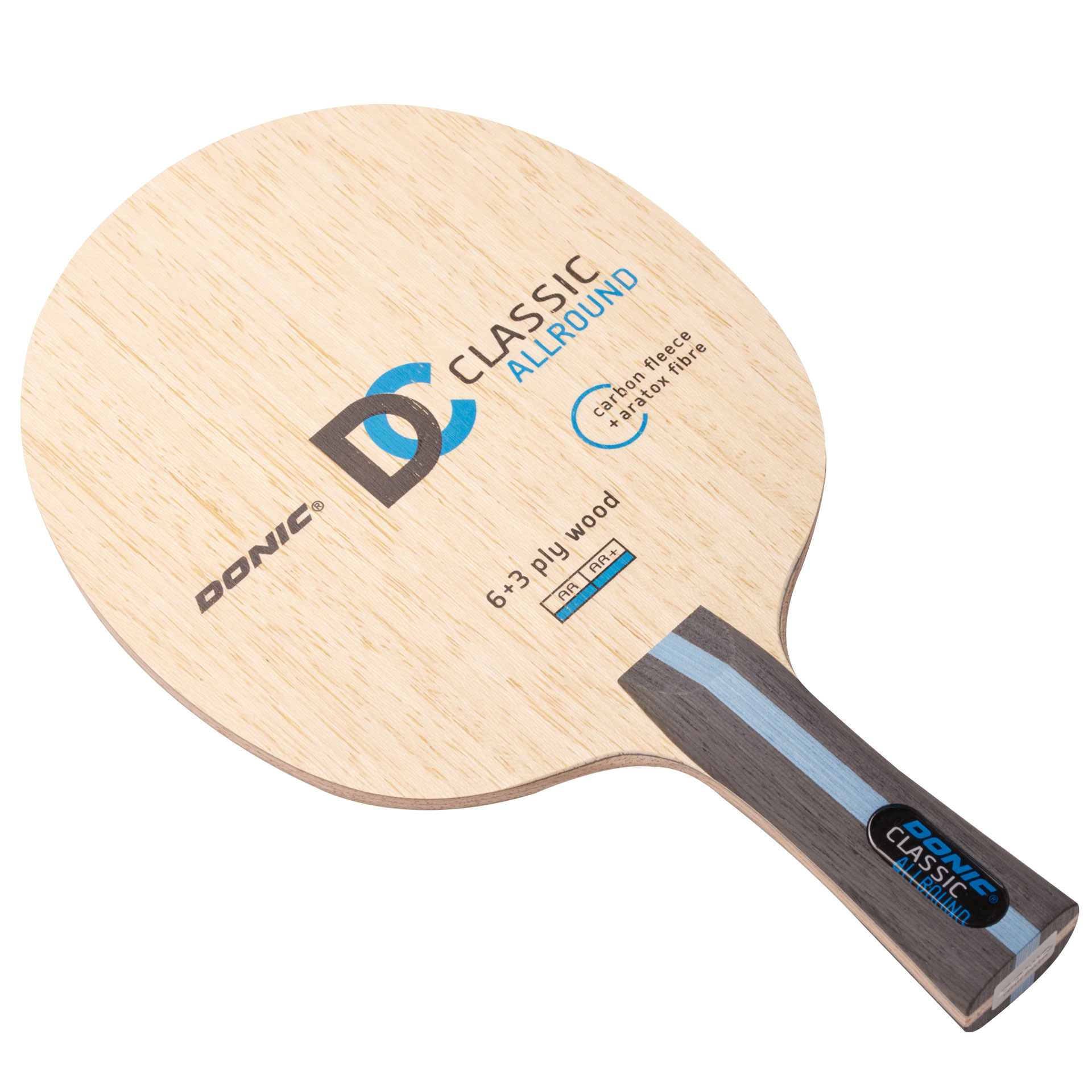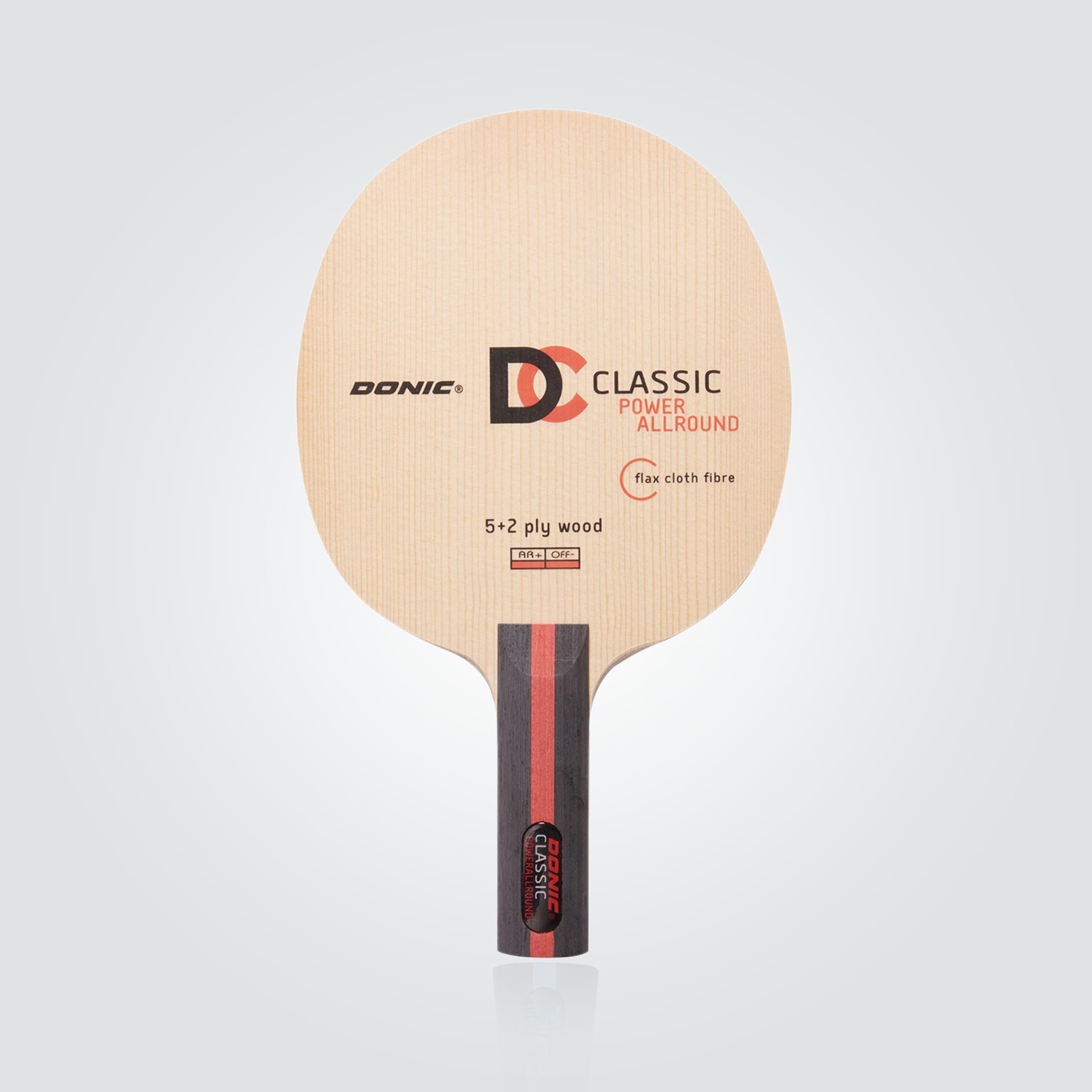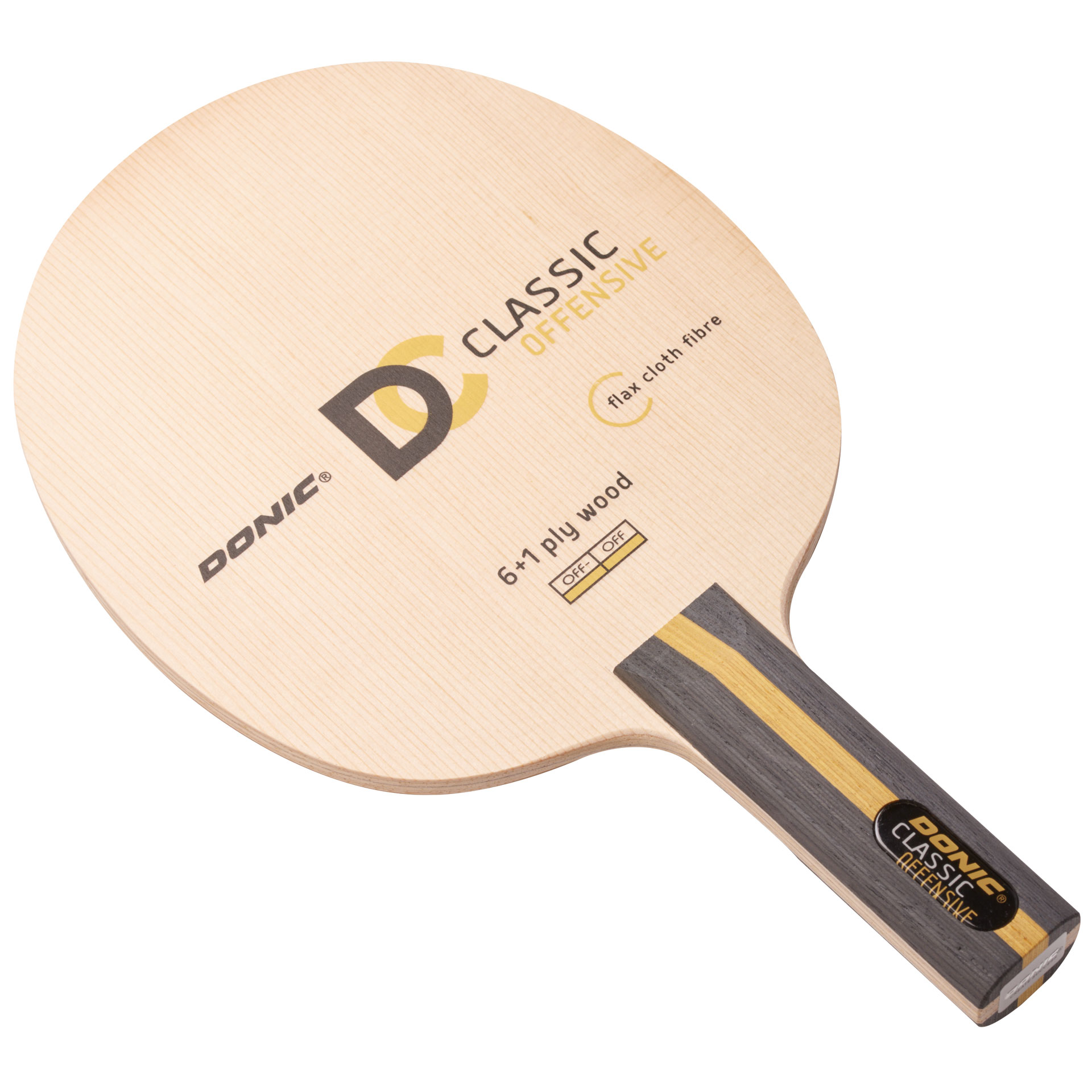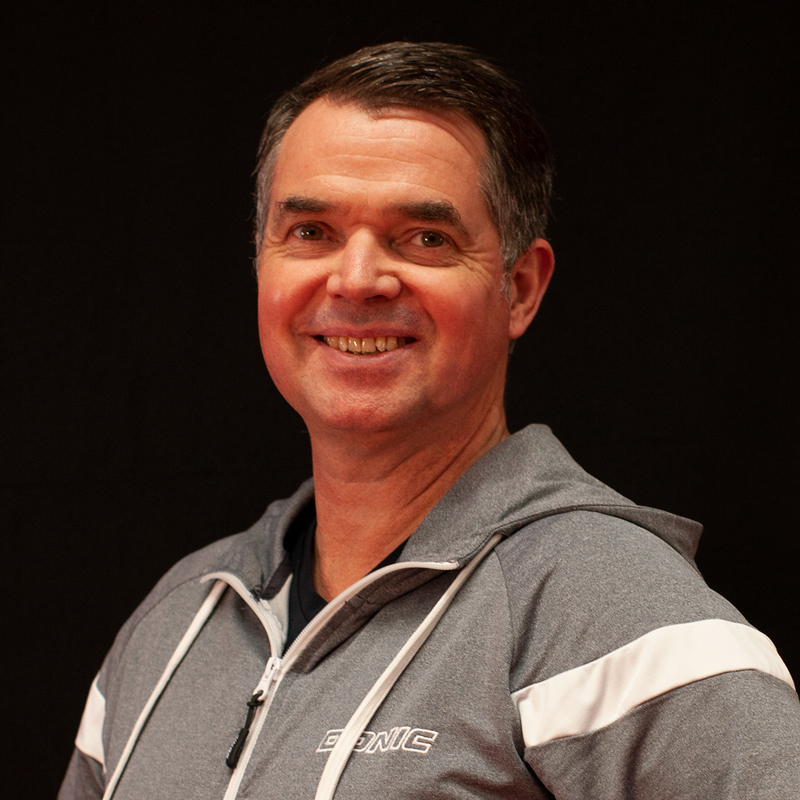
Name Steffen Fetzner
Date of birth 1968 | 08 | 17
Place of birth Karlsruhe, Germany
Nationality German
Height 169 cm
Weight 66 kg
Actual club Oldenburger TB
His nickname was program, for many years. Among the international table tennis stars of the 80s and 90s, hardly anyone was as fast on his feet as Steffen Fetzner, who also measured only 1.69 m - so the thought of the cartoon hero Speedy Gonzales, the fastest mouse in Mexico, was obvious. Even at his very first training course at national level, Steffen Fetzner was christened "Speedy" by then DTTB squad member Klaus Hamm, and he never had a problem with it. "It was fitting, I could just about see across the table and was also relatively nimble," he describes.
Even though today, at the age of 53, he is of course no longer as fast on his feet as he used to be, Steffen Fetzner has always remained Speedy for almost everyone who knows him. And those who know him are many. Because he was always a communicative and sociable guy. He was never one to turn up his nose, despite all his successes, but was always close to the people, a star you could touch.
That is not a matter of course. Because when he and Jörg Roßkopf won gold in the doubles at the 1989 World Championships, in front of 10,000 frenetically celebrating fans in Dortmund's sold-out Westfalenhalle, when he wrote a piece of table tennis history and became a legend, Speedy was not even 21 years old. The wave of enthusiasm that the German duo triggered, the table tennis boom that followed in the weeks and months that followed: All this can easily make a young man take off. But not Steffen Fetzner.
"When I moved to the boarding school, I was just 13."
Countless other successes followed, including winning silver in doubles with Roßkopf at the 1992 Olympics and two bronze medals with the DTTB selection at the 1993 and 1997 World Championships, a total of seven medals at European Championships, plus 203 international matches. But Fetzner always remained true to himself: He remained the Speedy the fans loved.
Of course, he confirms that all of this was thrust upon him early on, "but I also left home at an early age. When I moved to the boarding school, I was just 13," he recalls. And at Borussia Düsseldorf, the club with which he won everything there is to win in club sports for ten years, "we had an environment that kept us from taking off." Typical Fetzner: He is still a modest guy who, when the laurels are to be handed out, often points to his comrades-in-arms.
Nevertheless, he is anything but shy. Steffen Fetzner has always had the courage of his convictions, he is absolutely authoritative and authentic, and he learned early on to assert himself. These are qualities that help him today, as he has held a responsible position at DONIC since mid-2010. After completing his international career, Speedy first worked as a coach in Grenzau for several years, where he also completed an apprenticeship as an office administrator at Toto-Lotto. He then followed the lure of Qatar to spend three years there as head coach of the Aspire Sports Academy.
But it wasn't his dream job; becoming a coach was never his goal. "I asked myself early on: What will you do after your career? And I always said to myself: Rossi (Speedy's doubles partner Jörg Roßkopf) will be a coach, and I will work in management. That was my dream." Speedy has been living that dream for twelve years.
"Even before I came here, DONIC was a highly respected brand for me worldwide."
As a product manager at DONIC, he is responsible for the development of rubbers and blades, and as a promotion manager he also looks after the contract players of the traditional German brand, including the three Swedish table tennis legends Jan-Ove Waldner, Jörgen Persson and Mikael Appelgren.
In both roles, his skills and experience as a long-time world-class player stand him in good stead, as does his personality. Anyone who wants to further develop the rubbers and woods that are produced today with greater precision than ever before, the fine-tuning of materials in this highly sensitive area, must not only understand a lot about the subject, but should also have the necessary feel for the ball. And only those who have the eye to discover the stars of tomorrow can make the right decisions when selecting and signing contract players.
In both areas, however, you also have to deal with partners in the right way. "What contact you maintain with the players is important. They should feel in good hands with us," says Speedy. Of course, this also applies to the employees of the partner companies and suppliers with whom DONIC deals worldwide.
In international table tennis, a small elite where everyone knows everyone, trust is even more important than in the anonymity of business life in other industries. An impeccable reputation is a prerequisite here. Steffen Fetzner has one. He has a great sense of humor and a good feel for people, and in all his successful years, whether as an athlete or in his professional career, he has always remained the same person he was when he was a little boy: just Speedy.
"In the meantime I know: DONIC is also a reliable partner and I am part of a big family there."
He has also always remained true to his love: He still plays table tennis today. Many international stars are too vain to remain active even in the second or third class. Not so Steffen Fetzner. "I like playing, I can't imagine stopping completely either." However, due to his age, he only pursues his hobby with little effort. "Because it's also no longer possible with the back," he says.
With his current club, Oldenburger TB, he has won the German Senior Championships several times. He doesn't have the time to play continuously, but he trains regularly at the company, where he tests new materials every week with DONIC managing director Frank Schreiner, among others. Speedy's backhand is still impressive, and 2084 TTR points is a proud number for a 53-year-old.
In any case, in the Verbandsliga, where he helped the Oldenburg reserve in five matches in the 2020/21 season, he was clearly underpowered: In his ten singles matches, he lost a total of just one set. "I could still play in the premier league," says Speedy. And he wants to stay with the sport for a long time. "There's nothing better than being able to turn your hobby into a profession," he says. "I come from table tennis, I love table tennis, and I'm going to stay with table tennis."
